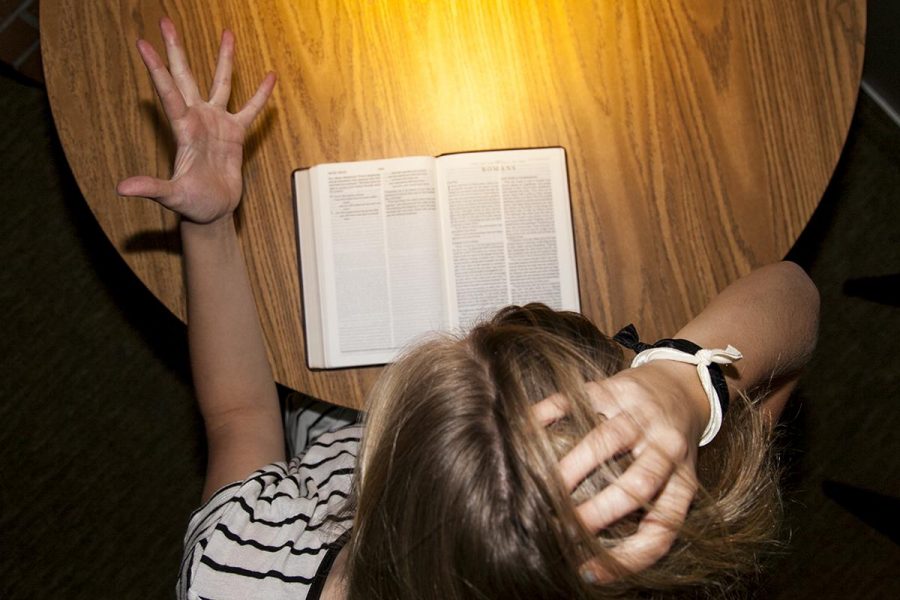Let’s talk about homosexuality
Lucy Stagnaro addresses the issue of homosexuality, and encourages readers to nurture faith before confronting matters of sexuality.
September 10, 2014

I am a conservative, female, heterosexual Anglican. I also plan to don a tux next summer and serve as “best man” to my close friend as she exchanges vows at her ceremony, which neither of us would call a wedding, with the woman she loves. Many people would take offense at my belief that identifying as a conservative Christian and participating in my friends’ ceremony are compatible. An equal number of people would congratulate me for my open-mindedness. Neither seems right to me.
The arguments in this article do not oppose or promote homosexuality in the church. The fact is, homosexuality exists in the church. Rather, I hope this article will begin a discussion focused around the prevalent view on Biola’s campus, a view I also hold. Homosexuality in the church is not a simple subject.
Considering homosexuality and the Bible often creates division even within a single person. On the one hand, how does a consensual, monogamous relationship hurt anyone? But the effects of sin destroy relationships and tear people away from God. And yet so many gay couples seem happy and healthy.
On the other hand, the Bible, as it is traditionally understood, has defined homosexuality as unnatural or evil for thousands of years. A smattering of other major world religions have also held this view.
Can we really believe that the modern mind has finally brought us to the true interpretation of scripture? Could we, 2,000 years later, understand the spirit of the law better than those who were there when it was written? I could go on. I do not declare a side. It bothers me both ways.
CONSIDERING THE PEOPLE
For the moment I have decided to stop considering the issues and start considering the people. The staggering rate at which gay Christians leave the church needs our immediate attention. The rate at which gay Christians commit suicide is an emergency. You may know someone who has wrestled with this. In case you have not, I understand this difficult process tends to follow a painful pattern.
Imagine that you are a good Christian kid who has grown up believing that homosexuality is evil. One day you begin experiencing same-sex attraction, exclusively. Because of the way you were raised, an immediate conflict arises between what you believe and what your body tells you. What happens when the empirical evidence provided by “the way God made you,” your very body, denies everything you believe to be true? I cannot imagine a more upsetting internal conflict. Were you really created, more than others, to be alone?
One could respond in a number of ways. You could decided that faith might be more about the spirit of the law and trust your body to tell you the truth and let science quiet your Christians convictions. You could rethink Christianity’s traditional interpretation of homosexuality and be a gay Christian. Or you could deny your body and pursue your faith as you already understand it. No matter what choice you make, you will undoubtedly create tension with those close to you.
Sin is opposed to human flourishing, regardless of your personal stance on homosexuality. I am not advocating the suspension of reason, theology or the project of reconciling the two. On the contrary, it is imperative that individuals diligently seek to form a well-educated and lovingly executed conviction on this matter. I ask that Christians everywhere would nurture faith before addressing sexuality.
So, given my own internal mixed feelings on the issue, you might wonder why I chose to go to my friend’s ceremony. I believe that my presence supports her faith and her ongoing relationships with the Christians in her life. It also invites her to an ongoing discussion about Christianity and sexuality. We at Biola must learn to provide a safe space for people of any orientation to answer these questions thoughtfully and in a community of people willing to hear them.







